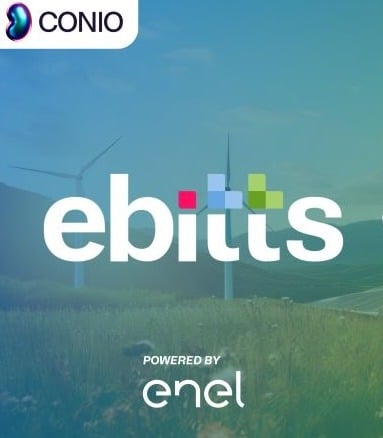Algorand & sustainability
Algorand is an environmentally-friendly blockchain that facilitates enterprise-grade scalability without sacrifice for security or decentralization.
Algorand is an environmentally-friendly blockchain that facilitates enterprise-grade scalability without sacrifice for security or decentralization.

Algorand’s lottery-style Pure Proof-of-Stake (PPoS) consensus mechanism is designed to consume less energy than proof-of-stake (PoS) consensus mechanisms. Through the use of a lightweight Verifiable Random Function (VRF) to select a validator for each block, Algorand only requires that one block is generated to confirm a transaction. In contrast, proof-of-stake blockchains, like Ethereum and Solana, require validators to create several blocks in order to reach consensus and confirm a transaction. In simple terms, Algorand only requires the energy needed for the single block to confirm a transaction, compared to PoS systems that require energy for multiple confirmation blocks.
This lightweight method to achieve consensus means Algorand validators do not need to constantly compete, and therefore compute, for block creation. Running an Algorand node is more efficient than other PoS blockchains, which translates to lower energy consumption throughout the network. The Algorand consensus, based on a lightweight cryptographic sortition, is designed to have minimal node hardware requirements when compared to other kinds of PoS blockchain (like Solana). This is the practical way in which Algorand does not trade sustainability with decentralization.
Failed transactions are not propagated through consensus on Algorand. Transactions are confirmed with instant finality, meaning they are finalized and irreversible as soon as they are added to the block. This efficiency is achieved through a two-step filtering process that minimizes wasted energy consumption. First, honest nodes immediately reject non-compliant transactions (e.g. transactions with invalid signatures) even before the VRF sortition. Second, even if a malicious actor that is actually selected by the VRF, attempts to create a block containing invalid transactions (e.g. attempts to double-spend funds or exceed account balance limitations), the block itself will be rejected during consensus. This two-step process allows Algorand to achieve fast and efficient transaction confirmation while maintaining strong security.
In contrast, the probabilistic approach taken by many PoS chains to validate transactions can lead to a situation where multiple versions of the blockchain exist temporarily (also known as soft-forking), with some transactions ultimately being discarded as the network reaches consensus. As a result, the energy spent on the validation of orphan soft forks is ultimately wasted, while all the energy used by Algorand is 100% useful work.
Thanks to the efficiency of PPoS, Algorand consumes small amounts of energy even as transaction volume increases, allowing it to deliver the trifecta of instant finality, 100% uptime, and high throughput, all while remaining sustainable under heavy network load.
In contrast, claiming sustainability without scalability is a hollow victory. It's easy to say a network is environmentally friendly if it processes few transactions. Imagine a network that boasts zero energy consumption because it processes zero transactions per second (TPS). While technically true, such a network wouldn't be very useful. Algorand stands as solid proof that a blockchain can be secure and performant while consuming a small amount of energy.
Being sustainable shouldn't come at a cost of security or decentralization—this is the ethos baked into Algorand’s design. The PPoS consensus mechanism ensures a level playing field and enables a truly decentralized network. On the other hand, some PoS chains that were developed with the goal of addressing Bitcoin’s carbon footprint issue sacrificed decentralization. This is true in particular for delegated proof of stake (DPoS) chains (such as EOS and Tron), which rely on a small number of validators and claim sustainability. While these systems may offer improved energy efficiency compared to proof-of-work chains, their decision to sacrifice decentralization should not be overlooked.
Read the Proof of Stake Blockchain Efficiency Framework paper.
The Algorand mainnet annualized CO2 footprint is 265 tCO2, which is approximately 7x less than annualized emissions associated with Ethereum PoS and 300,000x less than Bitcoin.
(According to our Algorand energetic model, based on public verifiable data as of June 2024)
Algorand is used by impactful companies that drive positive environmental change all over the globe.
ClimateTrade
Blockchain marketplace to trade carbon credits & fight climate change
/URECA.jpeg)
URECA
Verifies carbon data on chain for accurate carbon credit generation
Wholechain
Tracking products in real-time & verifying data across supply chains
/Al%20Goanna.webp)
Al Goanna
Leading NFT project on Algorand with one tree planted for every NFT sold

Ebitts, by Enel Group x Conio
Ebitts enables everyday customers to own and benefit from solar & wind infrastructure without installing equipment on their own property.

Algorand regularly offsets its minimal carbon footprint by purchasing carbon credits through the ClimateTrade marketplace built on blockchain. The Algorand Foundation offset the Algorand mainnet 2024 carbon footprint in support of the Phlogiston Phase I project, which supports a thermal reduction projects in the United States. View the transaction data recorded on chain via allo.info.
Previously, the Foundation neutralized its 2023 emissions by investing in the UNITOR REDD+ PROJECT, supporting biodiversity in Brazil, and its 2022 emissions by investing in the Evergreen REDD+ Project, another forest conservation project in Brazil. View the data recorded on chain.
DISCLAIMER: The information provided herein is for informational purposes only and does not constitute financial advice. We do not recommend that Algo or any crypto assets be bought, sold, swapped, staked, or held by you. We make no warranties or representations about the third parties linked in this page, the information contained on their websites, the assets available through them, or the suitability, privacy or security of their products or services. You acknowledge sole responsibility for and assume all risk arising from your use of third-party services, including risk of loss for assets.